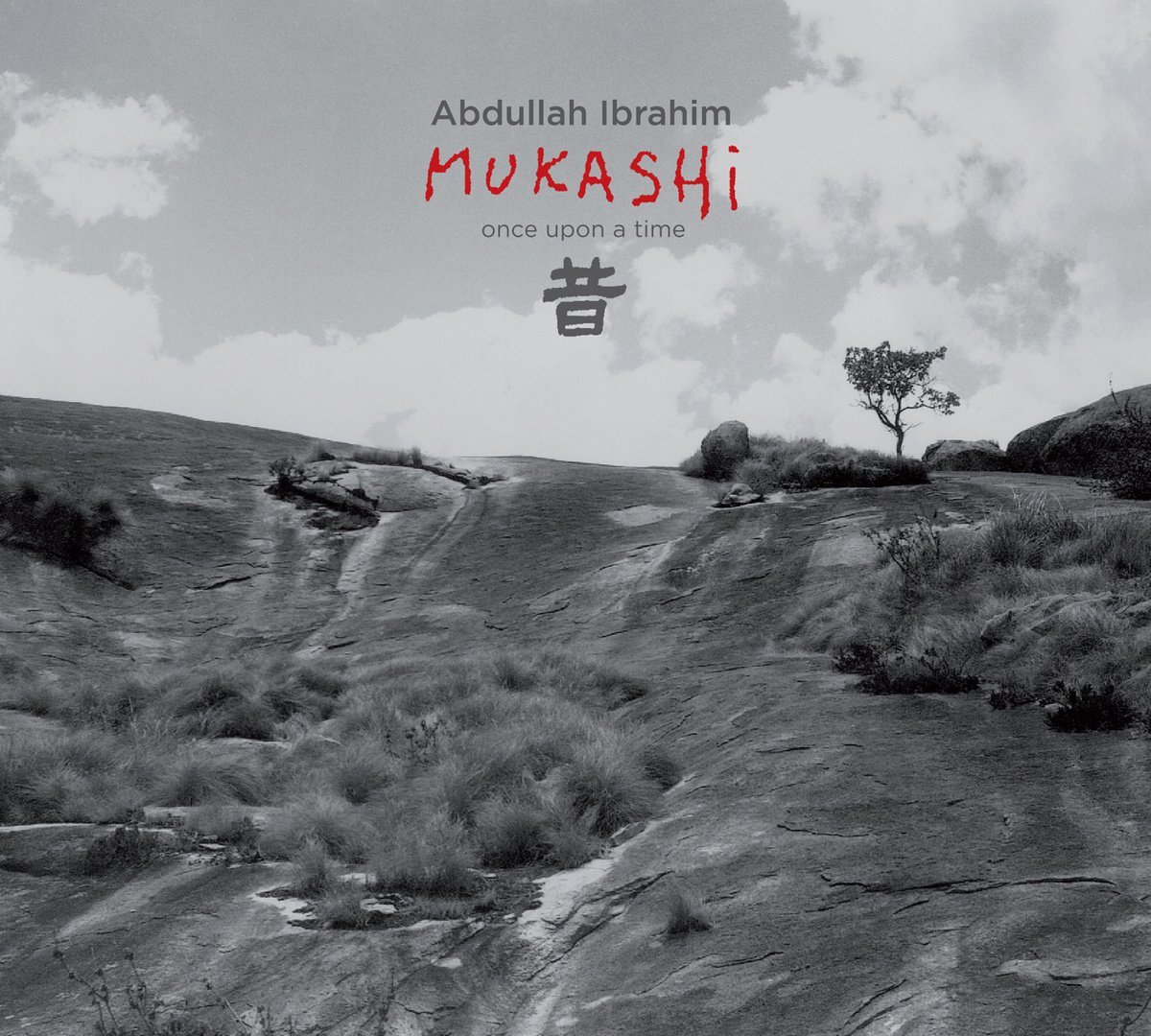On the eve of his 80th birthday and less than a year after the death of his wife, singer Sathima Bea Benjamin, South African piano great Abdullah Ibrahim has released his starkest, most reflective collection to date. Mukashi is a Japanese word that translates as “Once upon a time,” and the album finds Ibrahim in an unmistakably nostalgic mood tinted by his longtime fascination with Japanese culture. Never one for unnecessary gestures, Ibrahim here plays with the profound simplicity and unadorned expression of a Zen koan.
The CD’s 16 short tracks are arranged for various combinations of the pianist with wind player Cleave Guyton and a pair of cellists. Ibrahim finds a wealth of diverse riches in this seemingly limited palette; “Dream Time” is a lush chamber piece while “Matzikama” plays with the contrast of dark and light, Ibrahim’s bluesy piano versus Guyton’s breathy flute, one low somber cello against the other’s shimmering highs.
Ibrahim revives his classic pieces “Peace” and “Serenity” and offers solo renditions of the standards “The Stars Will Remember” and “Cara Mia,” the former with diamond-like clarity, the latter with the warm caress of a lullaby. “Trace Elements/For Monk” keeps the spirit of Thelonious hovering just over his shoulder, and the stormier solo piece “Root” is shot through with whispers of Cape Town, conjuring the former Dollar Brand’s long and troubled past with his native country. That is further explored in the three-part suite Krotoa, named for a 17th-century Cape Town girl encountering settlers for the first time. Whatever pain the past holds for Ibrahim, however, he ends with the buoyant brightness of “The Balance,” which carries only the faintest traces of bittersweet memory.
